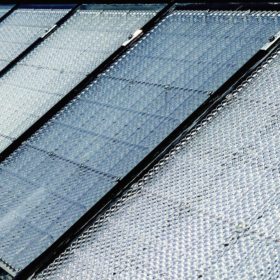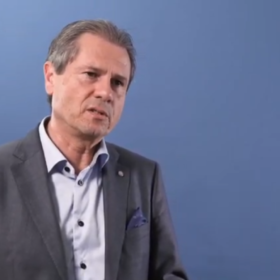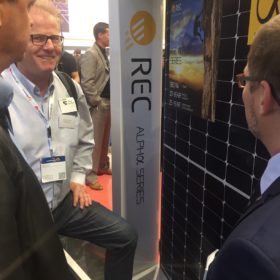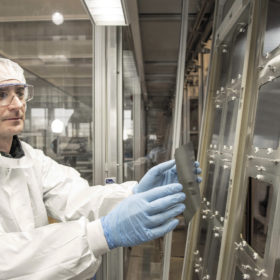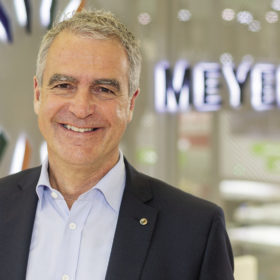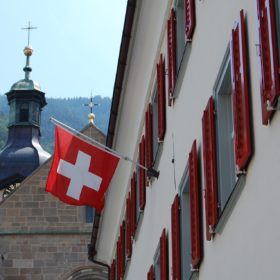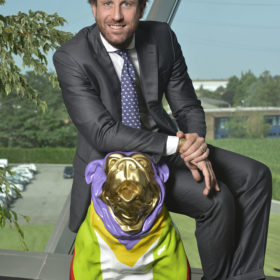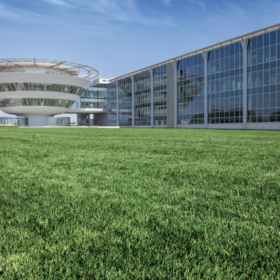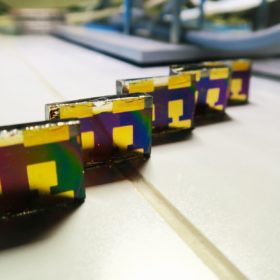Space age solar solution moves toward production
A consortium of European research institutes has received €10.6 million in EU funding to establish pilot production of a high efficiency module concept developed by Swiss startup Insolight. The module combines high efficiency multijunction cells with a solar concentrator lens and has previously demonstrated 29% efficiency.
Meyer Burger moves to calm shareholders
Meyer Burger’s new chairman has acknowledged that the outlook remains tense for Europe’s largest solar equipment supplier, but he is urging shareholders to support the company’s plan to reposition itself to focus on high-yield technologies and markets beyond China.
Meyer Burger abandons plan to relocate operations to China
The Swiss equipment maker is instead preparing to commit its future to PV in its European heartland and will start with plans to help Norwegian module maker REC Solar embark on a gigawatt-scale production expansion.
Oxford PV orders 100 MW production line from Meyer Burger
The British-German perovskite startup has ordered a turnkey 100 MW silicon heterojunction solar cell line from the Swiss PV equipment supplier. The terms of the deal were not disclosed.
China’s air pollution reduces PV production potential by up to 13%
If China could travel back to the 1960s with its 2016 PV generation capacity it could harvest an additional 14 TWh of solar power, according to a study by academics at universities in Switzerland and the Netherlands. With a mixed record for reducing pollution, the country’s solar fleet output appears to be drastically affected by dimmed solar radiation.
Meyer Burger seals $100 million HJT order, expects to hit break-even in first half
Swiss equipment supplier Meyer Burger has signed a contract to supply heterojunction cell manufacturing equipment to an unnamed North American manufacturer. The company also posted its preliminary results for the first half, posting a $14 million EBITDA loss but stating it expects to break even for the period after selling its wafer business.
Swiss solar on the rise… but too slow?
Switzerland deployed 271 MW of PV in 2018. According to Swiss PV association Swissolar, the current levels of development are not enough to meet the targets set by the country’s 2050 energy strategy.
Interview: Fimer CEO Filippo Carzaniga discusses acquisition of ABB inverter business
After the bombshell news this week, the Italian inverter manufacturer’s CEO spoke to pv magazine about the future of ABB’s R&D hubs, manufacturing sites, hundreds of employees and of course Fimer’s outlook.
ABB exits solar inverter business
This Swiss giant is following a trend as large multinational high-tech companies see their role as redesigning infrastructure rather than supplying inverters at ever lower margins. Schneider Electric has pulled out of large scale solar, Siemens’ Kaco acquisition and Junelight launch show increasing interest in the C&I and residential markets, and GE is likely to divest its power conversion business due to low profit margins in that sector.
EPFL scientists put perovskite through its paces
Scientists working at Switzerland’s École Polytechnique Fédérale de Lausanne, in the lab of renowned PV scientist Michael Grätzel, have developed a new method for testing perovskite solar cells that they say combines the advantages of laboratory and outdoor testing and will contribute to the creation of industry standards for characterizing perovskite stability.
